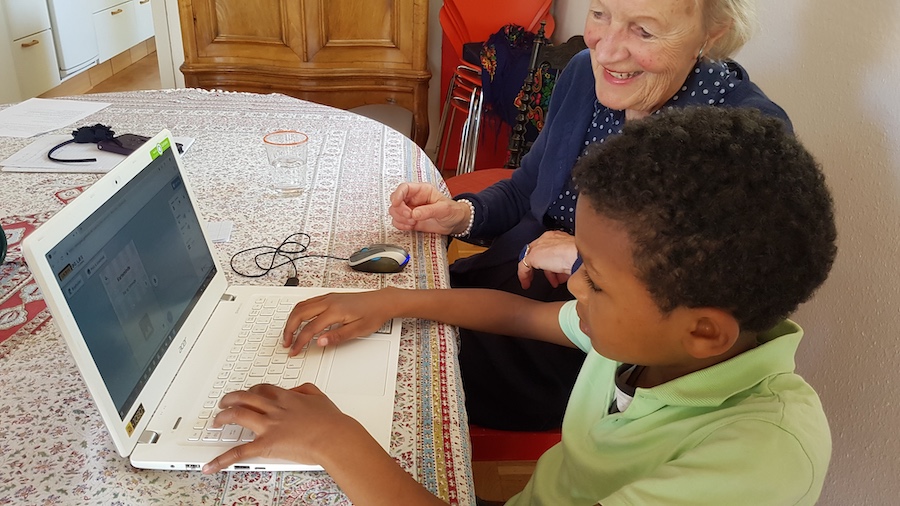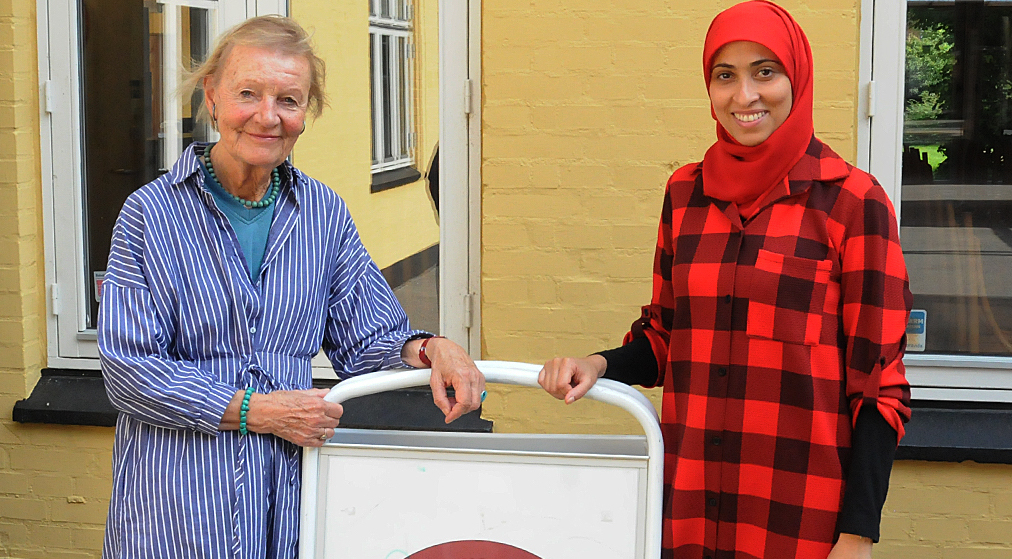On the Monday after Easter, I visited Pia Sigmund and 10 year old Temesgen, who moved from Eritrea to Denmark 3 years ago. Pia is a volunteer and the chair of the charity organization 2 Hours a Week. This charity aims to support multilingual children linguistically, culturally, and socially in order to receive a better education. Recently, the organization integrated WriteReader into their educational program. I was eager to visit Pia and Temesgen to observe our learning tool in action and confirm that the program was fulfilling the organization’s goals.

Book creation based on common experiences
Pia and Temesgen got seated in front of a laptop and started looking at photos from common experiences. Temesgen decided to write a book about a summer trip to the beach. Temesgen decided which photos to use and together with Pia, they recalled common memories. Together, they built sentences for his book. Temesgen typed the words while being supported by Pia, who afterwards added the conventional writing just below. Pia praised Temesgen’s attempts while helping him understand his mistakes. After writing four pages, Temesgen proudly read his book about swimming in the ocean for the first time.
Promoter for vocabulary practice and self esteem
After the writing session, I had the opportunity to ask Pia a few questions about potentially using WriteReader with refugee children. Pia finds WriteReader a valuable app because it encourages the children to share their stories with the helpers. Talking about their memories motivates the children to write more than, ’it was fun.’ The children watch the stories come to life on the pages and feel confident to write more books. Pia also believes these conversations and book creations give her important insights about the child’s perceptions, thoughts, and interests. When it comes to the social and cognitive aspects, Pia associates the following words to WriteReader: ’It gives a lot of small successes to the children every time they experience finding a letter on the keyboard, make an attempt at writing, or finish a sentence or a book. That’s actually what I like the most about the app.’
Previous and future books
Temesgen’s bookshelf includes three other books written during previous visits at Pia’s place. The books included stories about a circus performance, a viking market, and Temesgen and his friend, Lucas. During my visit, Temesgen and Pia already started to make plans for his next book. They quickly agreed on their common passion: dogs. Temesgen has decided to write about the dog who lives next door to him. Filled with optimism and respect for the great work that Pia does, I left the two. Temesgen and Pia still had a few more hours together of reading books, playing games, or maybe building with LEGO.
Perfect match
Alaa Abdol-Hamid, the daily leader for 2 Hours a Week, describes the beauty of WriteReader related to the organization’s goals in this way:
’It’s so heartwarming for the children from 2 Hours a Week to sit together with a volunteer and write a book by using WriteReader. Even though some of our youngest children don’t know how to spell yet, it’s a unique opportunity for them to create a book together with their volunteer. Using WriteReader is an activity that embraces the essence of our organization: doing things together that supports and improves the child’s language skills.’

2 Hours a Week has decided that all volunteers must make at least one book for every six-month contract period together with the child.
